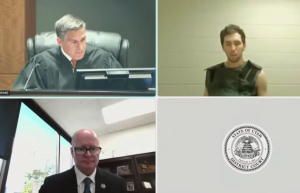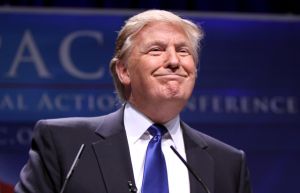Hackers pass on extensive information related to both parties fighting the U.S. elections to Russian intelligence gathering bodies. They have even tried to influence the polls, reveal local media.
Tuesday reports explain that state-sponsored hackers in Russia had probed the computer systems of the Democratic National Committee and had searched opposition-research files related to Trump. Further investigations show that efforts were being put in by Moscow's cyberespionage agents.
The penetration had stoked the DNC to initiate a computer security firm, CrowdStrike, last April. Consultants explained that the attack had been part of two Russian intelligence organizations: the Federal Security Service, or FSB, intelligence service and the country's military intelligence organization, known as the GRU.
"The security of our system is critical to our operation and to the confidence of the campaigns and state parties we work with," DNC Chairwoman Rep. Debbie Wasserman Schultz said. "When we discovered the intrusion, we treated this like the serious incident it is and reached out to CrowdStrike immediately. Our team moved as quickly as possible to kick out the intruders and secure our network."
The DNC's security experts oversaw the GRU hackers, codenamed "Fancy Bear. The hackers broke into files and memos compiled by Democratic "oppo" researchers. They were related to Trump, his business deals as well as various career-related aspects.
"We were watching these people for six weeks," said one source. "Their activity would take place from 9 to 5 Moscow time."
The Russian state-sponsored attack seemed to be very extensive, much more than the DNC hack.
"It's broader," one senior U.S. official said of the Russian hack.
Both Trump and Clinton were targeted by the Russians, according to sources. It is not clear, though, whether the state-sponsored hackers had really probed into the campaigns or not. "We have no evidence that our information systems have been compromised," said a Clinton campaign official, who requested anonymity.
It was James Clapper, the director of national intelligence, who gave the alert last year that "there were some indications" about cyberhackers, backed by foreign governments.
Even though Clapper's statement had been brief, it was enough to alarm the DNC's security experts, who had been trying to shield the system. They were concerned that the Russian hackers would become alert that they had been detected.
"It's the job of every foreign intelligence service to collect intelligence against their adversaries," said Shawn Henry, president of CrowdStrike, the cyber firm called in to handle the DNC penetration and a former head of the FBI's cyber division.
Dmitri Alperovitch, a top CrowdStrike executive, blogged that the Russian hackers, being "highly sophisticated" were likely to have employed "spear-phishing" emails to DNC employees so that they could hack into the computer systems. "Their tradecraft is superb, operational security second to none," he wrote.
Another idea being put up by the U.S. intelligence officials and private security experts indicates that Russians may have been driven by various reasons apart from gathering intelligence. They may have been motivated to influence the election. Hence, if they leak the DNC's oppo research files to the presumptive Republican nominee, they would reveal the vulnerable points.
It is clear that Trump has some affinity and respect with Russian president Vladimir Putin. He suggested that he may try to limit U.S. support for NATO, which is wanted by the Russians.
"We know they like Trump," said one security expert. "One reason they may have been doing this is to feed the information to Trump."
However, this has been denied by Kremlin. "I completely rule out a possibility that the [Russian] government or the government bodies have been involved in this," Dmitry Peskov, the Kremlin's spokesman, told the Reuters news agency in Moscow.
© 2025 HNGN, All rights reserved. Do not reproduce without permission.








